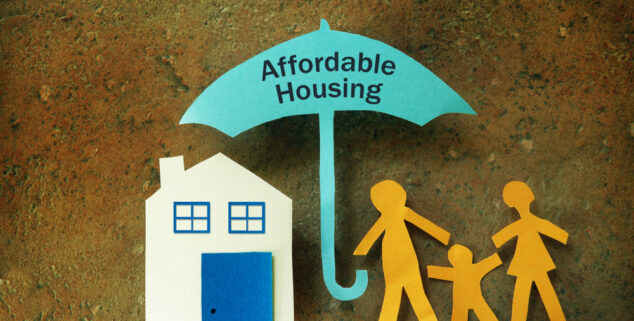Budget-friendly Homeownership Options for First-Time Homebuyers
As the housing market proceeds to progress, novice buyers deal with unique difficulties in securing economical homeownership alternatives. These efforts not just help with homeownership yet additionally foster community stability and economic growth.
Government Aid Programs
Federal government aid programs play an essential role in making homeownership achievable for numerous individuals and households. These programs aim to relieve the monetary worry connected with buying a home, specifically for first-time purchasers. By using financial assistance, grants, and tax motivations, federal government initiatives help connect the void in between rising housing expenses and the buying power of possible homeowners.
Various programs are available at the government, state, and neighborhood degrees. The Federal Housing Administration (FHA) offers insurance coverage on fundings, enabling loan providers to use a lot more positive terms, such as reduced down settlements and minimized passion prices. Additionally, state and local governments typically have their very own efforts, which might consist of down repayment support programs, property buyer education courses, and beneficial mortgage terms.
These programs are developed to deal with the one-of-a-kind challenges faced by reduced- to moderate-income family members, consisting of restricted cost savings and credit rating background. By cultivating an atmosphere where homeownership is much more available, federal government help programs not only sustain private goals but likewise contribute to neighborhood stability and financial growth. Recognizing and making use of these sources can substantially improve the leads of successful homeownership.
Low-Down-Payment Home Loans
For several hopeful home owners, low-down-payment home loans present a sensible pathway to homeownership, specifically in today's challenging real estate market. These home mortgage alternatives usually call for down repayments varying from 3% to 5%, making it much easier for new buyers to go into the marketplace without the worry of saving for a significant down payment.
Different lending institutions use low-down-payment programs, consisting of conventional financings backed by Fannie Mae and Freddie Mac, as well as government-backed options like FHA fundings. These home mortgages are developed to fit individuals with restricted financial savings while still providing competitive passion prices. Notably, they allow buyers to retain even more cash money for other vital expenses, such as relocating prices, home inspections, and prospective improvements.
However, prospective homeowners must bear in mind the trade-offs related to low-down-payment mortgages. A smaller sized deposit might cause greater regular monthly settlements and the need of exclusive home mortgage insurance coverage (PMI), which shields lending institutions in instance of default. It is essential for first-time customers to perform complete research study and consult with mortgage specialists, guaranteeing they choose a low-down-payment option that straightens with their lasting monetary objectives.
First-Time Property Buyer Grants
Several newbie homebuyers locate that gives can dramatically alleviate the financial worry of acquiring a home, matching low-down-payment mortgage choices. These grants, often given by state and neighborhood federal governments or non-profit companies, use monetary help that does not need repayment, making them an attractive choice for those getting in the housing market.
Eligibility for newbie buyer gives commonly depends upon income, credit reliability, and the acquisition price of the home. Lots of programs are designed to assist reduced- to moderate-income family members, guaranteeing that support gets to those that require it most. The application process typically entails documents of financial status, property buyer education and learning training courses, Clicking Here and sometimes even Click Here a commitment to remain in the home for a particular duration.
The quantity helpful varies widely, with some grants supplying numerous thousand bucks to help cover closing costs or down repayments. Looking into readily available gives in your location is important, as programs often alter and may have details requirements. By leveraging these economic sources, first-time homebuyers can make homeownership a lot more accessible, eventually achieving their desire for owning a home while reducing the initial financial strain.
Cutting-edge Community Campaigns
Cutting-edge area efforts are playing a critical duty in increasing economical homeownership options for residents. These initiatives often entail joint efforts between city governments, charitable organizations, and personal industry stakeholders to develop lasting housing solutions tailored to neighborhood demands.
One noteworthy approach is the facility of neighborhood land trusts (CLTs), which permit citizens to purchase homes while the land continues to be had by the trust fund. This model aids maintain price gradually and prevents speculative rate increases. In addition, CLTs commonly offer instructional resources and assistance services to recommended you read equip novice property buyers.
An additional efficient effort is the development of mixed-income housing tasks, which blend budget-friendly units with market-rate homes. This approach promotes inclusive areas and decreases the stigma usually associated with low-income real estate. Local federal governments are significantly supporting zoning reforms to assist in the building of accessory home systems (ADUs), which can give additional rental income for property owners while raising housing availability.

Tips for Budgeting and Saving

Following, develop a devoted interest-bearing account especially for your future home acquisition. Aim to conserve a percentage of your earnings regularly, ideally 20% or even more, to develop a significant down payment. Make use of automation tools, such as straight deposit or automated transfers, to make conserving much easier and much more regular.
In addition, take into consideration adopting the 50/30/20 rule: designate 50% of your earnings to requirements, 30% to wants, and 20% to financial savings and financial obligation repayment - Affordable Homeownership. This technique promotes balanced financial health and wellness

Verdict
In recap, affordable homeownership choices for novice property buyers encompass different sources such as government help programs, low-down-payment home loans, and grants. By leveraging these financial devices, people can browse the intricacies of homeownership, ultimately contributing to a more fair housing landscape.
As the housing market proceeds to evolve, first-time homebuyers face unique obstacles in safeguarding budget-friendly homeownership choices. By promoting an environment where homeownership is more accessible, federal government aid programs not just support individual aspirations yet additionally contribute to neighborhood stability and financial development. By leveraging these monetary resources, newbie property buyers can make homeownership much more available, inevitably attaining their dream of owning a home while minimizing the first monetary strain.
In recap, budget-friendly homeownership choices for first-time buyers include various sources such as government assistance programs, low-down-payment home mortgages, and gives. By leveraging these financial devices, individuals can navigate the intricacies of homeownership, ultimately adding to a much more fair housing landscape.